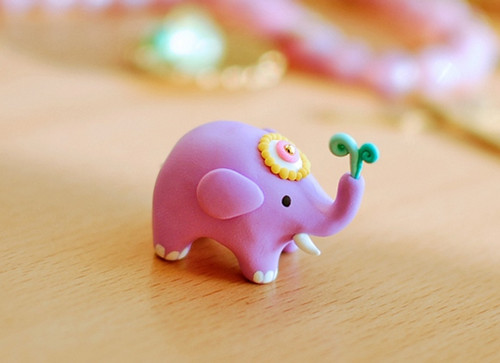
自己的大学生活英文作文160字【一】
It wasn't until we moved into our new home in 2006 that I found it again. It was addressed to me with explicit instructions not to open until my birthday 2005. It was now 2006 so I decided to open it. This is what it said:
Dear Sherri
By the time you read this you will be 30. At the age of 18 I had so many hopes and dreams about where you'd be, what you'd be doing and with whom you'd spend your life with.
Right now I hope that you have traveled and seen everything you've always wanted to, both in Canada and overseas, and maybe even settled down somewhere in Australia doing some research in the field of biology (genetics.
I hope you're married to the man of your dreams. The man of mine is Gwynn. He is originally from South Africa (another place I wish to visit.
You'll probably have two children of your own – a girl(Michaela Anne and a boy (name yet to be decided.
If everything goes according to plan you'll be living in Australia in a big house in a small town outside of a big city with a lot of land, a dog, Gwynn and your two beautiful children. Hopefully you have a career in the medical field, maybe doing research in genetics. Gwynn will be a computer programmer and you will be doing alright for yourselves.
However, if things don't go according to plan for you, I wish you all the love, happiness and joy in the world and don't settle for anything less than the best since that is absolutely what you deserve.
Live long, be happy and live life to it's fullest.
Love Sherri "18″
When I read this for the first time since writing it I was floored. Even now having dug this up again another 4 years later I still can't help but think this is really cool.
So much of what I wanted for myself has materialized.
I did travel to a few more places in Canada although I haven't seen everything I'd like to.I did marry the man of my dreams and yes he still is my one and only.I've traveled to the UK, South Africa, Australia and New Zealand. I lived in Australia for nearly 4 years in a big house, in a small suburb, in a major city (close enough. I had a career in Biology in the field of genetics for 10 years.I have two lovely kids – both boys (names now decided.
I have not one dog but two dogs. Both yellow labs from Australia.Gwynn is a computer programmer. We are doing okay for ourselves.
After writing this I quickly forgot about what I had put in here actually. The things that materialized were all met with quite a bit of resistance (all internal but I suppose these were things that I really did want. Having never strayed too far from home overseas travel was a huge deal. Having never been away from my family moving to Australia for several years was an incredibly huge decision.
I find it fascinating how the dreams of a young and naive little girl can become a grown woman's reality.
I'm curious if you guys have ever written anything to your future self and how it stacks up to your current reality. If you haven't, will you join me in writing a letter now to yourself in say 10 years from now? It's an interesting little experiment.
自己的大学生活英文作文160字【二】
I read the Chinese version of “Camille” a few years ago. At that time I was deeply moved by the main character Marguerite Gautier. “Camille” or “The Lady of the Camellias” by Alexandre Dumas, fils, is the story of Marguerite Gautier, a young courtesan, or kept woman, in Paris in the mid 1800's, and how she falls in love with a young man, Armand Duval, and then tries to escape from her questionable past. Unfortunately, it comes back to haunt her and she ends up returning to that life and dies painfully and alone, but with the knowledge that she was a noble woman at heart. When I first began to read the book, I did not care for Marguerite or her attitude or lifestyle, but as I got further into the narrative, I realized that her saucy attitude was a front to cover the lonely woman that she really was. She felt used, abused and unloved, until the gentle Armand Duval came into her life and showed her that he loved her as a person and not for what she could do for him. It must have taken great courage for Marguerite to leave the life she had lived for so long, knowing all along that it was probably too good to be true and would not last indefinitely. And it also showed that Marguerite really loved Armand Duval for she could even change herself for him.
However, happiness didn’t last for long. When M. Duval, Armand's father, came to her, pleading for her to leave Armand to save both Armand's reputation and that of his younger innocent sister, Marguerite saw a way to become pure of heart, if not in body. She felt that it was her duty, because she loved Armand so much, to do this even though it meant giving up her own happiness and hurting Armand temporarily. She reluctantly returned to her former life, knowing that.some day Armand would forgive her. Sadly, she died in debt and basically alone, except for her one female friend, Julie Duprat, who helped her during her illness. She had her journal sent to Armand after her death, explaining why she had made the choices she had. I think Dumas's last few lines about Marguerite being the exception, not the rule were quite true, and I also agreed with his view that while her lifestyle could not be condoned, we as a society assume that all of these type of women are cold and heartless, while this may not always be the case. A person can make the wrong choices in life when they are young, and try to redeem themselves, but sometimes past situations prevent them from changing their lives, even though they desperately wish to do so. This applies to both men and women in many different types of circumstances: involvement in crime; drug or alcohol abuse; gambling; prostitution; financial problems; poor marriage choices; etc. And this is the fact, which exists in the whole society.
As far as the other characters in the book, I think Marguerite was right in saying that no one truly cared about her, but only wanted something from her, the only exceptions being Armand and Julie Duprat. Of course, the Comte de G. and Comte de N. wanted her body and appearance. The
Duke needed to “wake up and smell the coffee” and realize that she could never replace his dead daughter. If he truly cared, he could have helped her leave her lifestyle without “keeping” her himself. And lastly, Prudence was a blood-sucking leech who used Marguerite almost worse than the men. I also think she was jealous of the fact that Marguerite had so much more courage than herself and someone truly loved her.
Last morning, when tiding my bookshelf, I took this book out of the shelf, and a dried flower flew away from the book. It was pale blue, very transparent, with thin fine veins. a dried flower flew away from the book. It was pale blue, very transparent, with thin fine veins. I held it against the morning light and blew on it. The soft breeze carried it away. Camille is just like the camellia, she could never escape from the destiny of withering. But it wasn’t her fault; it’s because of the evil of Capitalism and the hideousness of that society.
Suddenly, I remembered a saying: “Women are like the flowers”. Those pretty women are like those beautiful flowers; their delicate beauty makes people feel they are the miracle of life. However, even the God envies their beauty. It seems that beautiful women always have tragic endings. As we are normal persons, even we can see the hideousness of humanity that results in their fate of withering, we can at most ask quietly in our hearts: Where have those beautiful flowers gone? Where have they gone?
The Life And Adventures Of Robinson Crusoe
It seemed to be such a coincidence that the night after I finished reading The Life And Adventures Of Robinson Crusoe, I was to dine in a restaurant distinctly related to the book itself. This restaurant was no other than the famous American-styled “Friday ’s. ” The reason for mentioning this restaurant is quite straightforward to all the gentlemen, ladies and children who have read the novel and enjoyed it, which is the fact that this restaurant was, most likely, named after the American Native in Robinson Crusoe, called Friday. This restaurant offers very exceptional service, for instance when the waitresses are asked to order dishes they kneel rather than stand, which, unlike the other restaurants I have been to, makes it easier for the customers to hear them speak. Moreover, Friday’s friendly services to the customers help them to make better choices when ordering dishes. I remembered when I went to Friday ’s last time; the waitress kindly described the items on the menu with precise details. It turned out that the combo I initially wanted was designed to be shared among a large group, not to be eaten by one person. I think this restaurant shows many commendable features similar to that of Friday. Friday brought emotional warmth to the people around him with his appealing personality. I think it was this personality that affected Crusoe and made him say that he loved Friday when Crusoe didn ’t express love for his parents, brothers, sisters, or even his wife. “When he espied me, he came running to me, laying himself down again upon the ground, with all the possible signs of an humble, thankful disposition, making many antic gestures to show it to let me know how he would serve me as long as he lived.” This was what Friday did after Crusoe had rescued him from the two savages chasing him. It was easy for me to see why Crusoe had loved Friday. After sometime, Crusoe and Friday were to rescue Friday’s father. When Friday reunited with his father, the scene was easy to move anyone: “It would have moved anyone to tears to have seen how Friday kissed him, embraced him, hugged him, cried, laughed, halloed, jumped about, danced,
sung; and then sung and jumped about again, like a distracted creature. It was a good while before I could make him speak to me.” This is my favourite chapter in the whole book. It is hard to see why Friday is an ex-savage when he can have personalities more praiseworthy than many civilized people, viz. Crusoe himself. “When he (Friday went to him (Friday’s father, he would sit down by him, open his breast, and hold his father’s head close to his bosom, half an hour together, to nourish it; then he took his arms and ankles, which were numbed and stiff with the binding, and rubbed them with his hands.” Furthermore, Friday’s expression of loyalty in asking Crusoe to kill him rather than leave him is more heartfelt than anything Crusoe ever says or does.
Crusoe, on the absolute contrary, seems incapable of deep feelings, as shown by his account of leaving his family—he never shows any emotions. After a moving lecture from Robinson’s father about his future, he still decided to follow his own wandering ambition. Careless was he about the wishes of his parents to keep him alive and prosperous, as he was the only child left in the family. When he came back from the island which he had lived on for twenty eight years, he found that it had been too late to tell his parents that he was still alive, but yet again he did not feel sorry for them; he also did not feel sorry for the two people who had to live in misery for nearly thirty years under the allusion all of their sons were dead. He had the same feelings for his wife: when he was married, he said it was “not either to my disadvantage or dissatisfaction”, implying that it was also neither to his advantage nor his satisfaction. Moreover, after his wife died, Robinson did not think of looking after the three children they had, but went back to the island, which he had lived on for twenty-eight years. It was on this trip which Robinson Crusoe revisited “His Island ” as he called it. I feel that Robinson ’s indifference to his family is almost emotionally cruel.
Before had clearly shown the contrast between Crusoe’s and Friday’s personalities, as when Friday, in his joyful reunion with his father, displayed far more emotion toward his family members than Crusoe, whereas Crusoe never mentions missing his family or dreams about the happiness of seeing them again. I think Defore is very successful in introducing Friday as part of the novel, it makes the whole novel seem much more complete and gripping to the reader, as well as proving that Defoe’s ideology of racism is civilized unlike many other Europeans at that time; natives and savages are not worse than others but can perhaps even be more modern and civilized. Those are the reasons of why I like The Life And Adventures Of Robinson Crusoe and Friday.
自己的大学生活英文作文160字【三】
亲爱的康康:
你好!
晚上在自习室里有那么一刻钟的时候,你很焦灼,坐在理综楼里5楼,考研的同学在做最后的冲刺,你在看书,但是却突然内心里翻滚了一层又一层的焦虑,像不断涌向岸边的潮水,一波又一波,你知道,那是一种来自即将毕业,即将面临人生中最大转折却又感到乏力的无助感,于是你一遍遍的试图平复内心的躁动,深呼吸,但是没办法,好像是不可遏止的自然灾难,你烦躁的走向窗边,拉开窗帘,仿佛这样就可以将那股躁动祛除。但是不然,不在徒劳,你颓然回到座位上,想大声的尖叫,有一种想撕纸的冲动,此刻的你只恨自己还残存最后的理智,也许没有理智你还可以轻松些吧。
这是201x年的第一天,本应该有个美好的开始,但是你现在却很难受,像困兽。
这不是第一次的焦灼,也不会是最后一次。一次又一次的面试,应聘,失败,让本来就不自信的你更加的愈发的对自己失望,开始自我怀疑,恶性循环,你知道,你清楚的'知道这样的状态不好,你知道即使没有自信也要假装很有自信,但是你做不到。
当一次次的听到某个同学又签了工作的时候,你不是不着急,你怕你是最后一个没有着落的一个,你怕毕业那天你的行李会被像垃圾一样被扔出去却没有归属地,你怕毕业那天就宣告了自己的失业,你怕自己在迫在眉睫的那天被抛弃,流离,辗转于各个城市的招聘场所,你怕那种被挑剔的眼神。
康康,你是个没有安全感的人,你内心脆弱,你外表却假装坚强,你害怕挫折,但是你却不能不要求自己要坚强,要勇敢的面对社会给你的一切困难。
康康,你向往的是什么样的生活,你心里是知道的。
开一家花店,开一家书店,可以在任何时候写自己想写的文字,有一个爱你的人。
你喜欢读书,你有时候会很伤感,你害怕与人打交道,你善良,你喜欢抬头看天上孤单的月亮,你喜欢黑夜,你喜欢花花草草,你有时候很小心眼,你不喜欢与人打交道,你希望有个温暖的属于自己的小窝,哪怕很小,你希望自己可以有一份即使工资不高却稳定的工作,你希望可以给父母很好的生活,你希望家人可以幸福,你有太多的希望,但是现在的你却总是萦绕在一股失望不自信中。
你有时候很有信心,却又突然间泄气。
康康,你不能这样,即使在毕业之前没有工作可签,即使在毕业后你仍然是“无业游民”,即使现实看起来这样残酷,即使新闻中报道有多少多少的大学生失业率,即使存在蚁族,即使可能将来你也会是蚁族的一员,即使你不能有很好的生活,即使你没有很高的工资,但是康康,你一定不要放弃自己,你一定要坚强乐观。
康康,你一向是不乐观的,总是把事情想得过于悲观,你心里想的事情很多,细枝末节,边边角角你都能想到,这是你的心思细腻的优点,但是不要过分。过犹不及啊,
不要悲伤,乐观,即使没有顿顿大鱼大肉,即使只能吃咸菜,只要活着,只要笑着就是一种幸福。
人生,可不就是要笑着度过吗?
康康,你一定要记住,不管怎样,只要活着,即使再不济,你也可以有机会品味这种生活的不济,可以看到你喜欢的蓝天,白云,大树,花草,月亮,只要你活着,坚强的活着……
不再需要慷慨激昂的话语,不要听什么豪情壮志的宣言,你只要按照自己的心的引领走下去就是好的。
你的心
201x年1月1号
自己的大学生活英文作文160字【四】
This is a story about a special and unreserved woman who has been exposed to a hostile environment but continuously and fearlessly struggling for her ideal life. The story can be interpreted as a symbol of the independent spirit.
It seems to me that many readers’ English reading experience starts with Jane Eyer. I am of no exception. As we refer to the movie “Jane Eyer”, it is not surprising to find some differences because of its being filmized and retold in a new way, but the spirit of the novel remains----to be an independent person, both physically and mentally.
Jane Eyer was a born resister, whose parents went off when she was very young, and her aunt,the only relative she had,treated her as badly as a ragtag. Since Jane’s education in Lowwood Orphanage began, she didn’t get what she had been expecting——simply being regarded as a common person, just the same as any other girl around. The suffers from being humiliated and devastated teach Jane to be persevering and prize dignity over anything else.As a reward of revolting the ruthless oppression, Jane got a chance to be a tutor in Thornfield Garden. There she made the acquaintance of lovely Adele and that garden’s owner, Rochester, a man with warm heart despite a cold face outside. Jane expected to change the life from then on, but fate had decided otherwise: After Jane and Rochester fell in love with each other and got down to get marry, she unfortunately came to know in fact Rochester had got a legal wife, who seemed to be the shadow following Rochester and led to his moodiness all the time ----Rochester was also a despairing person in need of salvation. Jane did want to give him a hand, however, she made up her mind to leave, because she didn’t want to betray her own principles, because she was Jane Eyer. The film has finally got a symbolist end: Jane inherited a large number of legacies and finally returned. After finding Rochester ’s misfortune brought by his original mad wife, Jane chose to stay with him forever.
I don’t know what others feel, but frankly speaking, I would rather regard the section that Jane began her teaching job in Thornfield as the film’s end----especially when I heard Jane’s words “Never in my life have I been awaken so happily. ” For one thing, this ideal and brand-new beginning of life was what Jane had been imagining for long as a suffering person; for another, this should be what the audiences with my views hoped her to get. But the professional judgment of producing films reminded me to wait for a totally different result: There must be something wrong coming with the excellence----perhaps not only should another section be added to enrich the story, but also we may see from the next transition of Jane’s life that “Life is like a box of chocolates, you never know what you would get.”
What ’s more, this film didn’t end when Jane left Thornfield. For Jane Eyer herself, there should always be somewhere to realize her great ideal of being independent considering her fortitude, but for Rochester, how he can get salvation? The film gives the answer tentatively: Jane eventually got back to Rochester. In fact, when Jane met Rochester for the first time, she scared his horse and made his heel strained, to a certain extent, which meant Rochester would get retrieval because of Jane. We can consider Rochester’s experiences as that of religion meaning. The fire by his frantic wife was the punishment for the cynicism early in his life. After it, Rochester got the mercy of the God and the love of the woman whom he loved. Here we can say: human nature and divinity get united perfectly in order to let such a story accord with the requirements of both two sides. The value of this film may be due to its efforts to explore a new way for the development of humanism under the faith of religion.
自己的大学生活英文作文160字【五】
Many people simply regard Pride and Prejudice as a love story, but in my opinion, this book is an illustration of the society at that time. She perfectly reflected the relation between money and marriage at her time and gave the people in her works vivid characters. The characters have their own personalities. Mrs. Bennet is a woman who makes great efforts to marry off her daughters. Mr. Bingley is a friendly young man, but his friend, Mr. Darcy, is a very proud man who seems to always feel superior. Even the five daughters in Bennet family are very different. Jane is simple, innocent and never speaks evil of others. Elizabeth is a clever girl who always has her own opinion. Mary likes reading classic books. (Actually she is a pedant. Kitty doesn’t have her own opinion but likes to follow her sister, Lydia. Lydia is a girl who follows exotic things, handsome man, and is somehow a little profligate. When I read the book, I can always find the same personalities in the society now. That is why I think this book is indeed the representative of the society in Britain in the 18th century.
The family of gentleman in the countryside is Jane Austen’s favourite topic. But this little topic can reflect big problems. It concludes the stratum situation and economic relationships in Britain in her century. You can find these from the very beginning of this book.
The first sentence in this book is impressive. It reads: “It is a truth well known to all the world that an unmarried man in poss ession of a large fortune must be in need of a wife”. The undertone is very clear: the foundation of the marriage at that time is not emotion but possession.
People always think that Austen was an expert at telling love stories. In fact, the marriage in her book is not the result of love, but the result of economic needs. After reading this book, I know the truth is that a poor woman must be in need of a husband, a wealthy man.
I couldn’t forget how eager Mrs. Bennet wants to marry off her daughte rs. If you want to know why she is so crazy about these things, I must mention the situation in Britain at that time. Only the eldest son had the privilege of inheriting his father’s possessions. Younger sons and daughters who are used to luxurious lives have no choice but marry a man or woman in possession of a large fortune to continue their comfortable lives. Thus, we can see that getting married is a way to become wealthier, particularly for women without many possessions. Jane Austen told us that money and possession determined everything, including marriage and love in her century.
In “Pride and Prejudice”, the sister of Mr. Bingley strongly opposed his plan of marrying Jane because the Bennets don’t have many possessions and their social positions are much lower than them. From this, we can see there are a lot of obstacles for a not very rich woman to marry a wealthy husband. The society, the relatives would not allow them to get married.
In modern society, although the marriages of economic needs have decreased rapidly, the concept of “money determines everything” is still rooted in some people’s mind. A lot of parents try hard to interfere their children’s marriages. Education background, possessions, jobs remains the main reason that may influence one’s marriage. Marry for money is still a big problem in our
society. We can’t help thinking: can money determine everything?
Austen left this problem for us to think. The genius of Jane Austen lies in this perfect simplicity, the simplicity that reflects big problems. Although Austen was only 21 when she wrote “Pride and Prejudice”, her sharp observation of social lives makes the style of this book surprisingly mature and lively. The plots in her works are always very natural. The development of the plot is as inevitable as a problem in mathematics. I think the depth of Pride and Prejudice is the reason that makes this book prominent and classic. Today, her book still can be the guide telling us the economic relationships both at her time and in modern time.











